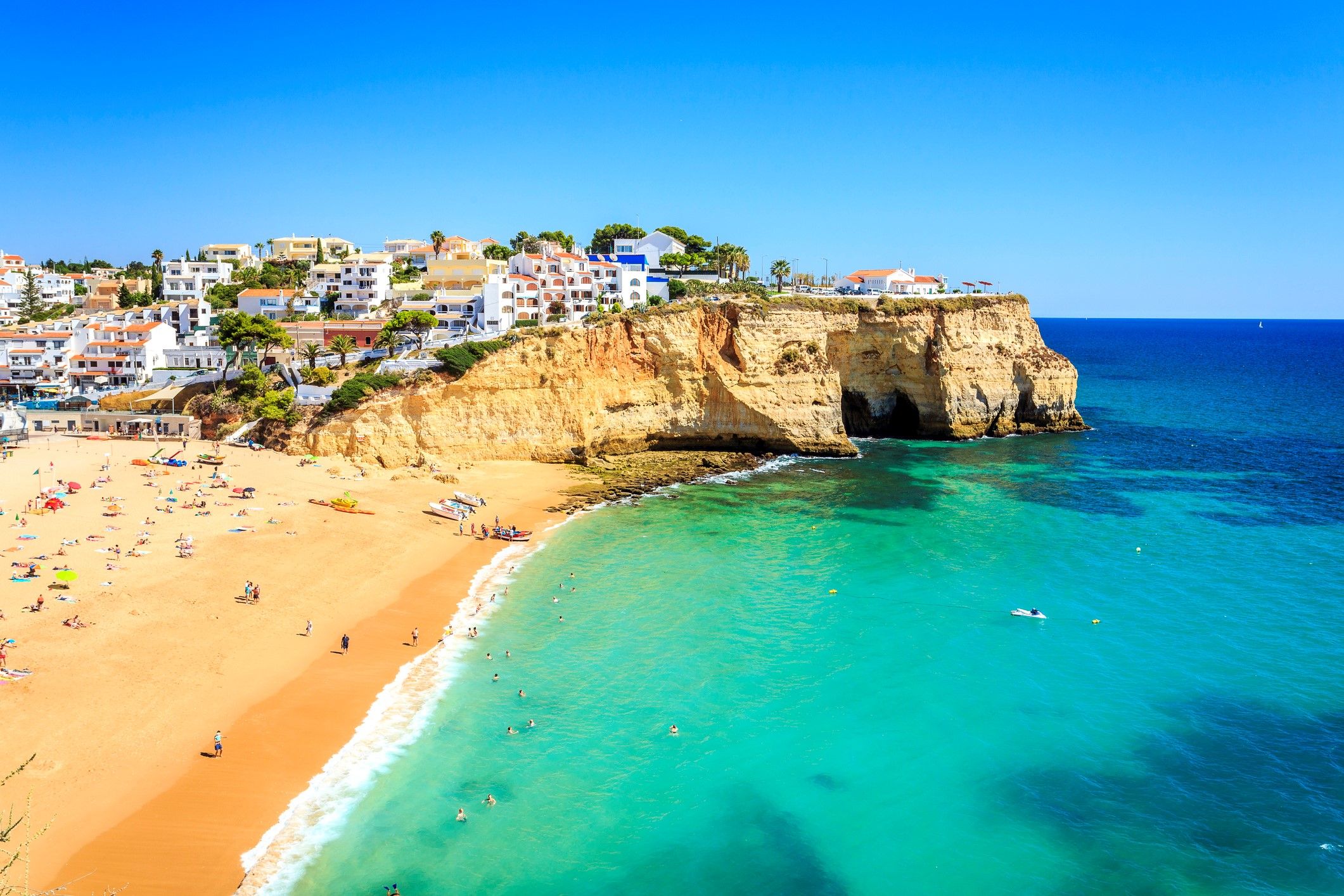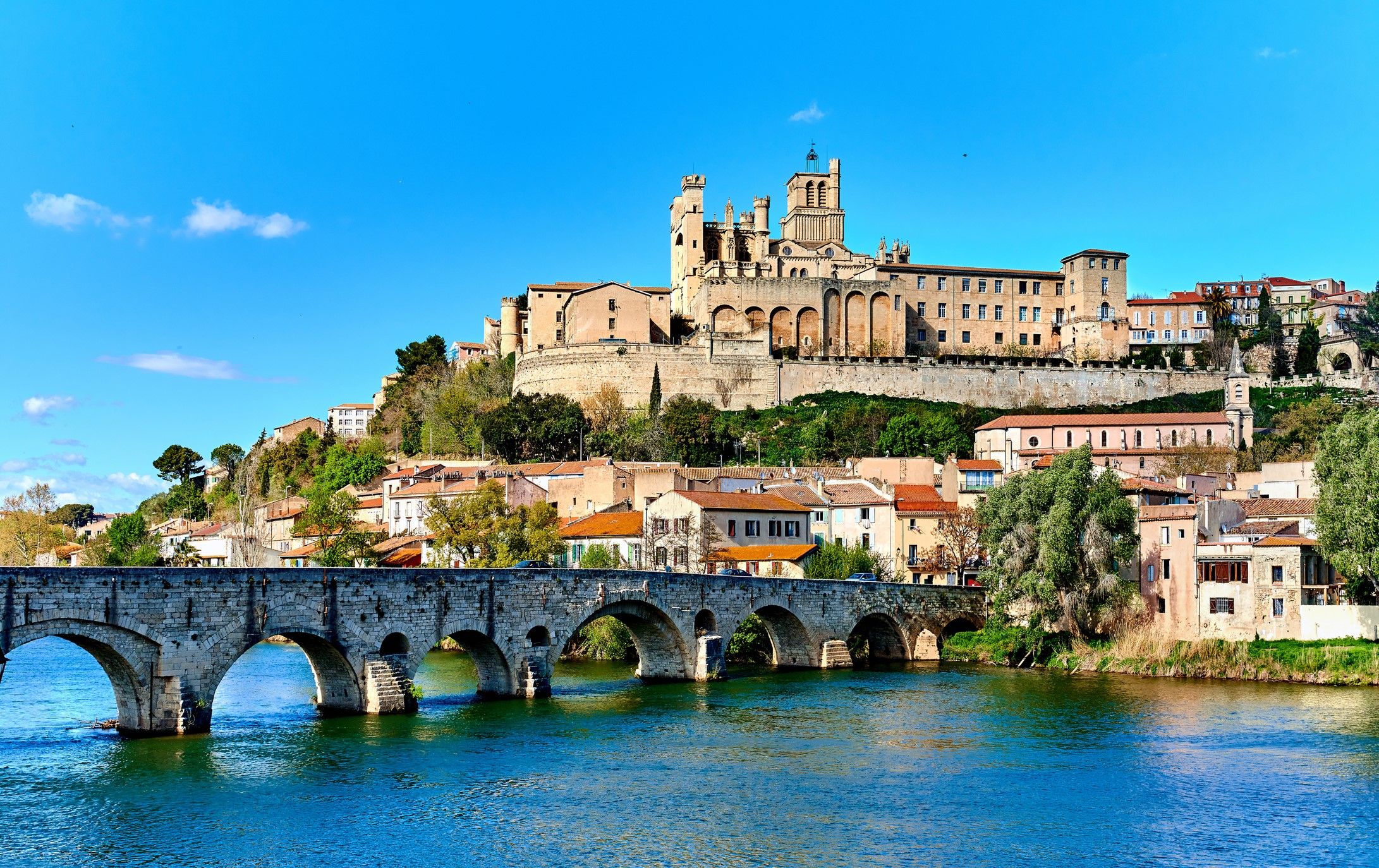Other People's Money: The Miracle of Leverage Can Make You Rich
Leverage is pretty simple. You use borrowed money to buy a property and, by doing so, you can increase your returns.
I get a lot of questions about financing overseas real estate. I usually start by saying there are more ways to finance your overseas real estate investment or second home than you might think...
Most folks know about getting a line of credit at home against your property or other asset.
And I know of folks who have used a self-directed IRA, something I'll deal with in detail at another time.
But in this brief report I'll focus on five things:
- How exactly can we use leverage to supercharge our returns?
- Borrowing in Europe and how we can take advantage of the historically low interest rates there.
- Developer financing is a big benefit of RETA. Membership of RETA means that you have exclusive access to this type of financing on many of our best deals.
- I'll touch on using your IRA or 401k funds.
- Finally, I'll talk through seller financing and how that can work out well.
Let's get started...
Wishing you good real estate investing,

Ronan McMahon, Real Estate Trend Alert
Supercharge Your Gains with Leverage
You need to be prudent, but with the right deal you can 5X...10X...even 20X your money using the miracle of leverage.
The right deal is key. I've looked at lots of deals that have 100% finance at less than 2% and never recommended them to RETA because the deals didn't stack up. Don't buy a bad deal just because of cheap and easy credit.
Let's look at an old RETA deal from Spain.
North Americans can get mortgages from Spanish banks. Not a possibility in every country on my beat, but in countries where you are able to, it can be the road to those huge profits I'm talking about.
One Sunday afternoon back in 2019 I was reviewing some old recommendations I had made to RETA members to see how they were doing.
I came across a listing for an apartment in La Duquesa on Spain's Costa del Sol. A two-bed unit listing for €245,000.

In 2013, RETA members could buy here from €95,000.
It was one of the very first Spanish deals I recommended in the wake of the last big global crisis.
Turning €95,000 into €245,000 in six years (from 2013 to 2019) is quite the gain.
But let's assume the buyer bought with an 80% mortgage from a Spanish bank, which was available then—and now—to foreign buyers.
That would have put you into the deal for €19,000 and shows gains of €150,000.
That's nearly eight times your money.
My analysis of course is somewhat simplistic. I have ignored the rental income you could have banked from renting short-term to vacationers here. The Costa del Sol greeted more than 13 million tourists in 2019. I also ignored purchase costs and holdings costs. In Spain there are high upfront buying costs. Figure on 10% but it can be a bit more or less. Your ongoing holding costs are tiny—€40 a month should cover your HOA fees and taxes.
But you get the point...
The miracle of leverage makes is possible to 5X, 10X, and even 20X your money. And, not just at a time when the stock market and real estate back home are rising.
Borrowing in Europe
In July 2009 Sweden's central bank cut its deposit rate to minus 0.25% overnight.
That's right...they started charging to hold funds on deposit.
It was to be a short-lived desperate policy response to the financial crisis. The idea was to encourage banks to lend more. And to create a system-wide disincentive to sit on cash.
The European Central Bank (ECB) soon followed.
Now, more than a decade on, we are in an entrenched period of negative rates in Europe. (And it's a hot topic of debate in the U.S. as rates fall.)
As real estate investors we care because there has never been a better time to borrow money in Europe. For example, in Portugal, North Americans can borrow up to 80% loan-to-value on a property at rates of less than 1% in some cases.
The ECB is offering us almost free money...and we can use this to supercharge our returns.
I'm personally using this play in Portugal.
Last year, I bought a condo on Portugal’s Silver Coast. When I bought my mortgage rate was 1.1%. But since then, rates have fallen even further.

My contact on the ground, Chris White, is a good example of how you can use leverage to super-charge your gains.
Chris found an old and unloved villa of around 5,000 square feet. He borrowed 90% of this €420,000 property, so he paid €42,000 down, with repayments of just €830 a month.
After Chris refurbished the villa it threw off €30,000 in rental income while he and his family traveled and vacationed abroad during his kids summer holidays. (Something he does every summer during that red-hot rental season.)
The villa's value is now likely €1.2 to €1.5 million.
Now Chris is selling this house and is set to buy two derelict houses to repeat the same play.
As I write this report, Chris is in the process of buying two homes for €600,000. He figures he'll need €250,000 to €350,000 to renovate. He plans to move into one and rent out the other.
I absolutely love this play. And it's perfect for anyone who plans to live in the Algarve for just part of the year. With one good rental, you can create some impressive rental yields during the 10 weeks from late June to August. Then you're in positive cash flow and you can use the place yourself the rest of the year or continue to rent it out if you like.
Over the past couple of years, I’ve sent RETA members my scouting reports from Italy and the South of France
In your July 2019 issue, I revealed what I'd found in France's largest wine-producing region, the Languedoc. I looked at historic village homes ideal as a base for a few months of the year that could return a 6% gross yield. That's lower than I expect for a RETA deal, but it is a way of owning a historic home in France that pays. And, I expect you could see an annualized capital appreciation of 6% over the next 10 years.

That trip also put the city of Montpellier high on my Europe watchlist. It is among the most attractive and exciting cities I have ever visited. It gets 300 days of sunshine a year and offers the strolling visitor a mostly pedestrian old town of winding lanes amid Renaissance-era mansions. You'll find avant garde architecture too, art galleries, museums, superb nightlife and dining, the city even has its own Arc de Triomphe. Then there's the beach. It takes just 20 minutes or so on public transport to leave the compact city center and have your toes in the sand looking over the Mediterranean.
I've also told RETA members that real estate in Italy's major tourist centers is overlooked and how we stand to profit. Even before Covid-19 you could find cheap real estate in Italy in places with a surging demand for short-term rentals. The economy was already fragile and there was low confidence and a weak appetite for real estate investing among Italians. Yet millions of tourists—more than the world has ever seen before—were visiting...and are set to return. And because of the crisis real estate prices, which have been falling for 18 years, are set to fall further. It means we can own in blue-chip tourist destinations like Venice, Florence, and Rome and make a 15% yield or more.

As part of my preparation for post-coronavirus scouting in Europe I've gone on a deep dive into mortgage financing for foreigners in France, Italy and Spain. I'm still researching, but the bottom line is that foreigners can borrow a significant percentage of a property's value at very low rates. The typical French mortgage allows a buyer to borrow between 70% to 80% LTV, though some French mortgage brokers have a limit of only 50% for non-European Union buyers. UK and other EU residents/taxpayers may be able to borrow up to 85%.
Strict Banque de France lending laws state that your total debt (including rents, mortgages, and other regular expenses) cannot exceed more than one-third of your total income. If you are aged over 65, the banks will not include earned income; only passive income or retirement benefits will be considered.
All mortgage interest rates in France are linked to the Euribor (Euro Interbank Offered Rate), which was introduced at the beginning of 1999 along with the European single currency (the euro). French loans can be for between five and 25 years (but, most commonly, 15 or 20 years), depending on your age and the bank you've chosen.
So, for instance, it's possible you can borrow 80% for 15 years fixed at a rate of 1.2%. Or the same amount at a rate of 1.4% for 20 years fixed.
An Italian mortgage can be granted not just in euro but also in a different currency (such as American dollars or sterling). Rates vary from as little as 2.05% to 2.35%.
For foreigners, banks usually allow no more than 50% to 60% LTV according to the valuation report drafted by the appointed surveyor. The minimum a bank will lend you is usually €50,000, but some banks have higher minimums. Unlike France, there is no prepayment penalty.
For people over the age of 60, the maximum loan duration is usually reduced to 15 years. If the applicant is older than 60 years, Italian banks usually require the signature of another (younger) applicant that will be jointly liable.
The instalment of the mortgage, added to other potential ongoing financial obligations, should not exceed 35% of customers' net income.
The cost of a mortgage can be quite high, with arrangement fees to pay as well as a government tax of 2% of the amount borrowed, in addition to an extra notary deed fee (usually €2,500 to €3,000).
In Spain, foreigners can get a mortgage up to 60% or 70% of the value of a property if they are a resident in another country within the Eurozone. As a rule of thumb, you can expect to spend an extra 10% to 14% on the agreed purchase price for taxes and extra expenses—including the full service of a local lawyer.
You need to open an account in a Spanish bank. In order to open your bank account, you will need a NIE “Número de identificación fiscal para extranjeros” or Foreign Resident’s Tax Number.
It takes about six weeks to close a loan. There is a new “cooling-off” period of 10 days (effective August 2019), so this increases the timing for getting a mortgage.
If you buy your property for investment purposes you could have a tax incentive to take a loan, as you have to pay a tax on your “net income,” and you are allowed to deduct some charges from your rental income.
Most Spanish lenders require that you have both life insurance and property insurance.
Fixed-rate 20-year mortgages are the most common for foreigners. The standard offering for variable rate mortgages for non-residents is EURIBOR (Euro Interbank Offered Rate) +2%. However, current EURIBOR rates are in “minus” numbers. As of June 2021, the EURIBOR rate is approximately -0.5%.
For foreigners the fixed rate is between 2.5% to 2.85%.
Loans must be fully repaid before you reach 75 years old, so the duration will depend on your age when you apply for the loan.
Developer Finance
With many of the special off-market deals I bring to members of my Real Estate Trend Alert, I negotiate exclusive developer financing.
Walk into a bank in Mexico or Costa Rica, for example, and if you are very lucky, they might lend you 60% and charge you 8% or 10% for the privilege. That's after they're done weighing you down with excruciating bureaucratic requirements. Then, and only then, will they decide whether to let you borrow money—they might still refuse.
But, this is where our RETA members-only developer finance comes in...
Developer finance is, as the name suggests, where a developer finances a piece of the real estate you buy from him—he's the bank.
It's most commonly offered for pre-construction properties and also in markets where bank finance is extremely difficult to get for foreign buyers and/or prohibitively expensive.
Many of the deals I negotiate exclusively for RETA members have developer financing as an option.
Take a pre-construction condo I recommend and that you then lock down... You make a down payment when you sign the contract, usually 20% of the purchase price.
During construction you pay an additional 30% in the form of monthly and balloon payments.
When the condo is finished, you have two options: you can pay the 50% balance in cash, or take up developer finance, which can run for up to 10 years post-delivery of the condo. Interest rates start from 5%...in markets where locals can pay up to 10% on a mortgage from the bank.
When you do this, you can take up the developer finance and rent the condo out to offset costs...while putting your capital to work on another deal.
For instance, RETA members could buy homes in Los Cabos, Mexico, at a $152,350 discount. Finance rates on our Copala homes range from 0% to about 8%, depending on the term.
Down south on the Riviera Maya in Akumal, RETA members could buy fabulous two-bed, two-bath condos steps from the beach for $174,800 with five years finance available at 6.5%.

Late last year in Costa Rica RETA members were able to lock down ocean-view lots that would retail for $130,000 from just $92,000. (That's a 30% discount on retail.) Upon closing they paid a 20% down payment—$18,400 on a $92,000 lot. After that, payments of $613 per month for a term of 10 years. Then finally, the remaining balance.
I predict the lucky RETA members who got in will have the chance to sell their ocean-view lots for a sizeable profit long before 10 years has passed. I reckon gains could be as much as $78,000. (And there is no obligation to build.)
It's important to understand that with developer finance you typically don't own the asset until you have paid off the finance in full. The developer doesn't have to foreclose on you if you stop making your payments, he can simply take the real estate back, and keep the monies you have paid to date. He probably won't even have to go to court to do it, either.
In some countries, such as Brazil, developers must pay back some of the money you have paid on your condo if you stop making finance payments and they take the unit back... but that's not the norm. Make sure you understand the terms of your finance deal wherever you buy and do your due diligence.
Those caveats aside, get this right and it can be one of the most profitable ways in your arsenal to finance a purchase.
Use Your IRA or 401k Funds
You might be surprised to hear this...but contrary to popular belief, you can buy any type of real estate using an IRA or 401K—condos; agricultural land; single family homes; commercial, retail, or office space.
You can do almost everything with the real estate you buy—buy with partners, flip it, rent it out. But some general rules apply: Your retirement fund is meant to benefit you when you retire. So, if you use the funds to buy a vacation home, you'll have to wait until you retire to enjoy your first vacation in it.
But you can buy a retirement home now using your funds and rent it out. Any rental income earned must go back into the retirement fund; however, you can sometimes set yourself up as the property manager and pay yourself a reasonable fee.
You can't purchase real estate that you already own using your funds. And you usually can't purchase from family members or "disqualified persons" (which includes anyone providing services to your fund).
But you can use the funds in your IRA or 401k fund to buy international real estate. You should check with your custodian on the rules and regulations. Some rules apply to every retirement fund, but sometimes custodians apply their own investment restrictions. Even if you have a self-directed IRA or 401K, the custodian may not allow you to buy overseas real estate. You may need to transfer your account to a new custodian or set up a checkbook IRA to do that.
This is another finance strategy to consider, so it's worth checking with your custodian to see what you can do with your funds. (Note, I'm not in the business of IRA or 401K funds—you should talk to your expert advisor before making any changes to your fund set-up.)
Seller Finance
Seller finance is where the seller is willing to finance your purchase. You make an offer. If a seller's home is worth $200,000 you can offer $50,000 now and the balance over 10 years at 5%. Offers like this can work in markets where there aren't many buyers at that moment in time, and the seller just wants out. I've even seen folks make deals where they pay zero interest. To make deals like this you need to fine-tune your negotiating skills.
In this scenario, all, or part, of the purchase price is carried by the owner. Usually the buyer makes a down payment and then the owner and buyer agree terms on the finance.
They agree an interest rate, the term of the loan, and the monthly payment amounts. In a situation where owners are anxious to sell, that gives you leverage on negotiating good terms.
You'll need an attorney on board to advise you how best to set this up, to make sure it complies with local regulations, and protects you as a buyer.
The upsides for you as a buyer are shorter close times—no waiting around for bank approvals or detailed credit reports—and the finance can be tailored to suit your situation.
There are some things to consider: You need to make sure the seller has no liens, loans, or mortgages on the real estate. He needs to pay those off. Otherwise, if the seller doesn't stay on top of his loans on the home, you could lose it, even if you're up to date with your finance payments to him. And think about what happens if the owner sells on the loan to a third party...how will that affect you?
You negotiate the terms one-on-one with the seller. An important consideration here is when you take title. If you take title on signing the deal, you have more protections in the event of a dispute or if you miss payments. (That said, when I'm in the seller's position, I insist that title is only handed over when final payment is made.)
On the right buy and with the right owner, this can give you an edge in some markets on our beat, including Arenal (the lake district) in Costa Rica, and Placencia, Belize.
To give you an example, I brought RETA members a flash deal in Belize that involved seller financing.
Placencia is a little peninsula with 16 miles of sandy beaches. It's postcard-perfect Caribbean: unspoiled white sands, palm trees swaying in the soft sea breezes, and clear, warm waters.
It's only in recent years that the highway to Placencia from Belize's capital city was paved. That was a huge step forward, making this destination much easier to get to. It's opened access up considerably for tourists, snowbirds, and expats alike. Yet this is a relatively tiny peninsula, where most of the land is in single family home plots. Demand to own or rent a home there is rising...but there's a lack of inventory. I expect this to drive values and rental rates higher.
The deal I found was a fixer-upper, perfect for someone who doesn't mind rolling their sleeves up and adding value—or a buyer that wants to sit and hold while generating an income stream.
It was a lot with two buildings that were already generating rental income...but could do much better. The list price was $150,000. The lot was in a great central location in Placencia Village, on a quiet street that's a short walk to restaurants, stores, and only a four-minute walk to the beach.

There were two buildings on the lot, laid out as five individual rental units. The buildings were rented to local families, generating in the region of $1,225 a month as they were. That's a gross rental yield of 9.8% on the list price of $150,000. Not bad at all...
But you could target higher yields with an investment of time and money. The property could become a guesthouse or B&B. The existing buildings could be upgraded into units aimed solely at the short-term rentals market.
Alternatively, you could just sit on the property as is. Lots in the center of the village rarely come to market. There are no zoning restrictions on the lot and the central location means it's perfect for rental, long term or short term.
Now for the seller financing. The owner was willing to finance up to $100,000 of the purchase price at a rate of 6% a year. Remember, as it was you could make $1,225 a month renting to locals.
The fact that a seller is offering finance could mean that they are motivated. That might mean wiggle room on the price. For instance, my recommendation on that Placencia flash deal was to offer $130,000 for a quick cash sale.
Leverage Can Make You Rich
However you go about it, leverage is one of the most powerful tools available to a real estate investor.
Of course, you need to use it wisely if you want to use it to make profits. And that means using leverage on the right deals.
Everything else we do at RETA to find the best deals is crucial. For example, buying ahead of a Path of Progress that's set to push prices higher...or using our group buying power to negotiate a huge RETA-only discount...